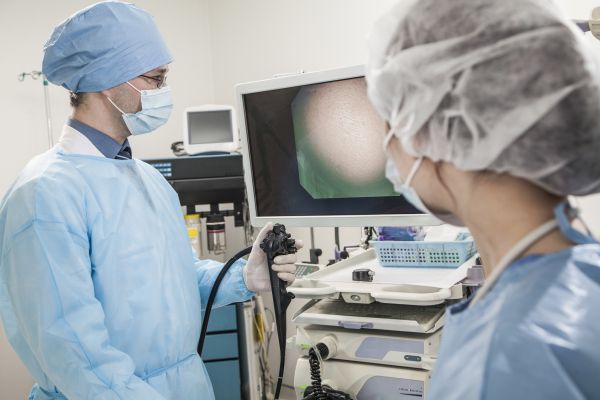Have you had a colonoscopy yet? Upon hearing this question, your answer likely falls into one of the following categories:
A) Yep! I’ve been screened and I’m not due again for another x-years.
B) Uh oh. I’ve been meaning to make that appointment for some time now.
C) Age 45 is years away. Don’t need to think about it at all.
If your answer is A...
Congratulations, you can help spread the word to the others, who need to keep reading.
If your answer is B...
Make the call today to schedule your colonoscopy. Colorectal cancer remains the 4th leading cause of cancer death in the United States, a sobering statistic when you consider that survival for early-stage colorectal cancer is about 90%. The gold standard of colorectal screening, a colonoscopy, detects – and removes – early-stage cancers and overgrowths of tissue called polyps that can potentially become cancer. The test does more than just find cancer, by removing the polyps it effectively prevents future cancer.
Know Your Risk
Roswell Park recommends that everyone at average risk begin regular colorectal cancer screening at age 45 — earlier if you have certain risk factors or family history.
If your answer is C...
Here’s your gut check: colorectal cancer is rising dramatically among people younger than 45. These cancers in younger adults, are more likely to be aggressive subtypes and at a more advanced stage at diagnosis. Roswell Park's dedicated program for patients with Young Onset Colorectal Cancer integrates specialized services and resources for these challenging diagnoses.
It’s not a matter of if you should be screened; it’s a matter of when, and that will depend on whether you have any risk factors associated with colorectal cancer. Talk to your physician about screening earlier than age 45 if you have any of the following factors:
- African American ethnicity
- Family history of colorectal cancer (Having a parent, sibling or child with colorectal cancer more than doubles your risk.)
- Personal history of colorectal polyps
- Certain genetic conditions, such as Lynch Syndrome, or Hereditary nonpolyposis colon cancer (HNPCC), or Familial adenomatous polyposis (FAP)
- Personal history of cancer, particularly of the ovary, uterus, breast or colon
- Ulcerative colitis or Crohn’s disease
Lifestyle factors - that you can change - are also associated with colorectal cancer. These include smoking, a lack of exercise, obesity and eating a diet that’s high in red meat and processed meats and fat and low in fruits, vegetables, calcium, folate and fiber.
However, if you don't have any risk factors (yet, anyway) and you're not yet age 45, be mindful of your body. See your primary physician regularly and don't be shy about sharing any symptoms, especially any blood in your stool or rectal bleeding, changes in your bowel habits or unexplained weight loss or anemia, and getting an accurate diagnosis for them.
Learn more about colorectal cancer and educate yourself on the various resources offered by Roswell Park. If you’ve read the facts and talked to your physician, and …
Your answer is still C? At least now you’re thinking about it.



